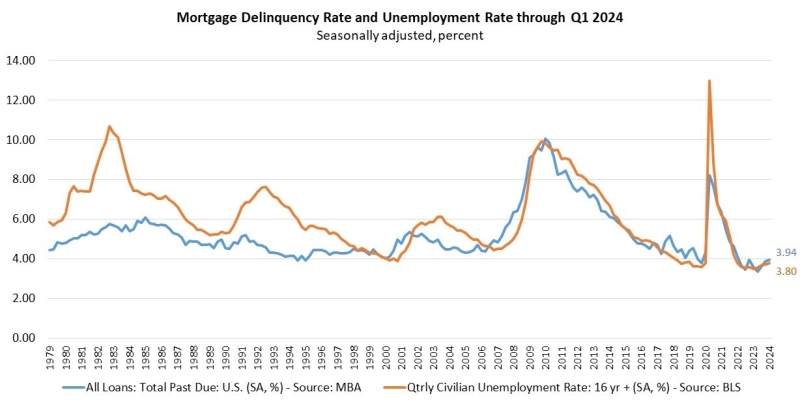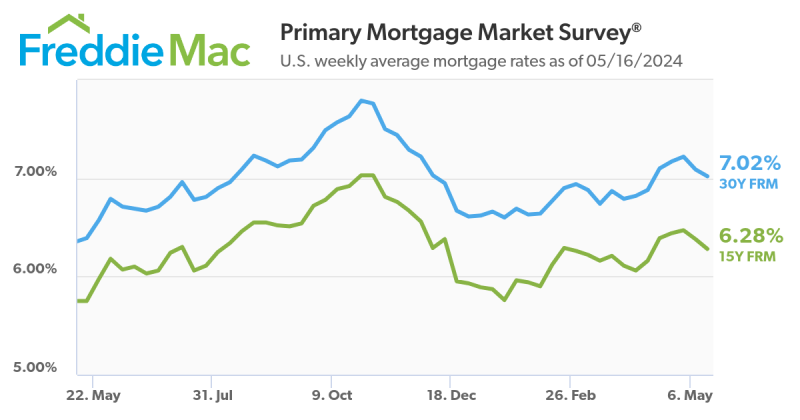Advertisement
Forward on Reverse ... Reverse Mortgagee Letter 2008-38: 20 years late
Seventh anniversary note
This is the 84th consecutive installment of Forward on Reverse. My aim remains the same as seven years ago when I began this endeavor: To help originators prepare for the huge demographic changes ahead in both our country and in residential mortgage lending. Reverse mortgages are the only residential mortgage programs that address the extra-cash needs of older customers without tying them down to regular monthly repayments. Even in these challenging times for our country and our industry, reverse mortgages remain a very bright spot. In addition to extra cash, reverse mortgages have been used to save many seniors from foreclosure across the country. The Federal Housing Administration-insured program (the Home Equity Conversion Mortgage) has been reinvigorated with the enactment of the Housing and Economic Recovery Act of 2008 (HERA).
Whether or not you plan to get into reverse mortgages, you should know about these innovative home loans and train your home lending teams to be literate in them. It is essential. After four years and eight months in the making, the book, Think Reverse!, is in the market. It is designed to help you in marketing and originating reverse mortgages. We are very pleased that AllRegs has released the online version of the book for its customers worldwide. I am deeply grateful to my publishers, Joel Berman and Russell Sickmen, as well as Editor-in-Chief Eric C. Peck, Executive Vice President Andrew Berman, Managing Art Director Joey Arendt, Office Manager Beatrice Marcus and the staff of The Mortgage Press for making the publication of Think Reverse! possible.
Thank you for reading Forward on Reverse!
Federal Housing Administration (FHA) Mortgagee Letter 2008-38 (Dec. 5, 2008) is 20 years late. Instead of clarifying the U.S. Department of Housing and Urban Developments (HUDs) Home Equity Conversion Mortgage (HECM) non-recourse policy, it adds to public and industry confusion about the reverse mortgage industry's signature program. For 20 years, HECM non-recourse policy was clearly stated in HUD Handbook 4235.1 Rev.-1 (1-3C), as thus: The HECM is a "non-recourse" loan. This means that the HECM borrower (or his estate) will never owe more than the loan balance or the value of the property, whichever is less, and no assets other than the home must be used to repay the debt.
Yet in Mortgagee Letter 2008-38 (ML 08-38), HUD artfully tried to turn clarity into confusion by blaming "some program participants" for misreading 1-3C. What can be clearer than the language of 1-3C above? Please, read it again.
Among "some program participants" guided by 3C's clear language over the last 20 years are legions of trained HECM counselors, originators, HUD reverse mortgage experts, bank and mortgage regulators, marketers, and others across industries and around the countrypeople like you and me.
So clear is the language of 3C that a recent regulatory manual on reverse mortgages for state bank supervisors and mortgage regulators, in explaining the two-percent mortgage insurance premium (MIP) borrowers must pay up-front to HUD to get a HECM, declared: "The MIP guarantees that if the company managing the accountcommonly called the loan 'servicer'goes out of business, the government will step in and make sure the homeowner has continued access to the loan funds. Furthermore, the MIP guarantees that the homeowner will never owe more than the value of the home when the HECM must be repaid." So, it was not just "some program participants" who, for 20 years, relied on HUD's HECM non-recourse policy as stated in 1-3C; even regulators did.
Let us assume that HUD's clarification in ML 08-38 is the "pure" definition of non-recourse, and some experts say it is. Why did HUD wait 20 years before issuing a clarification? Why did HUD allow industry and non-industry participants to misinform seniors, their families and the public for 20 years?
ML 08-38 imposed arm's length transaction requirements. Where families' emotions, inheritance and heirs/estates are involved, do the new arms length rules make sense? Is HUD suggesting that HECM borrowers should put non-relatives in their wills just to sell or buy their properties when they die?
Unquestionably, the potential for abuse exists in the pre-ML 08-38 definition in 1-3C. But how does the potential for some abuse outweigh the damage to HECM's credibility from the so-called clarification? So, what if there is some abuse? As the state regulators' explanation suggested, hasn't the borrower-paid MIP covered this risk? Isn't it possible that the HECM borrower has paid for the expanded definition of non-recourse in 1-3C? Could ML 08-38 be seen as an attempt to deny borrowers one of the benefits of their HECM MIPs?
Non-recourse, as defined in 1-3C, is a cardinal feature of the HECM reverse mortgage program. Without it, it may be difficult to suggest reverse mortgages to seniors, their advisors and their families. Without it, seniors and their families may shy away from a program that has brought hope, dignity and security to many seniors in their retirement years. Without it, marketing HECMs has become even more challenging.
ML 08-38 poses at least four new challenges for HECM counselors, originators and marketers:
1. Non-recourse disclosure: Counselors, originators and marketers must now tell seniors and the public that HECM's non-recourse is conditionalif they or their heirs/estates decide to keep the property, they must pay the full loan balance, even if it is above the property value; if they or their heirs/estates choose to sell the property, they will owe nothing more.
2. Arm's length disclosure/warning: "Ms. Hudball, if you take a HECM reverse mortgage, I am required, by federal regulation, to tell you that, at your death, your children or heirs may not be allowed to sell or buy your home because the government believes they are too close to you, your property, or your estate. Therefore, before you die, make sure you select committees of non-relatives to sell or buy your home." HECM counselors, originators and marketers: Just imagine these customer-friendly words rolling off your tongue! Welcome to the new and improved HECM, thanks to ML 08-38!
3. Serious doubt: Telling seniors and the public that industry understanding of non-recourse was "mistaken" for 20 years raises serious doubt about industry participants' veracity. "Hey, what else are they mistaken about?"
4. Marketing nightmare: Strongly supported by 1-3C language, the statement, "your heirs/estate will never owe more than your homes market value," has become an industry marketing mantra for 20 years. For a complex idea with a host of conceptual and historical baggage, the consumer reassurance afforded by that mantra is gone. It must now be followed by a big "but." It complicates marketing.
As the industry digests the disturbing implications of ML 08-38, other "clarification" challenges will come up. Meanwhile, for the sake of Americas seniors and their heirs/estates, the credibility of HECM and the reverse mortgage industry, HUD should reverse ML 08-38.
Think reverse. Move forward.
Author and columnist, Atare E. Agbamu, CRMS, is director of reverse mortgages at Minneapolis-based AdvisorNet Mortgage LLC. A member of BusinessWeek Market Advisory Board, Agbamu is author of Think Reverse and more than 100 articles on reverse mortgages. Through his advisory, ThinkReverse LLC, Agbamu advises financial professionals, institutions and regulators across the country. In a 2007 national report on reverse mortgages, AARP cited Agbamu's work. He can be reached by phone at (612) 436-3711 or (612) 203-9434 and e-mail at [email protected] or [email protected].
About the author





